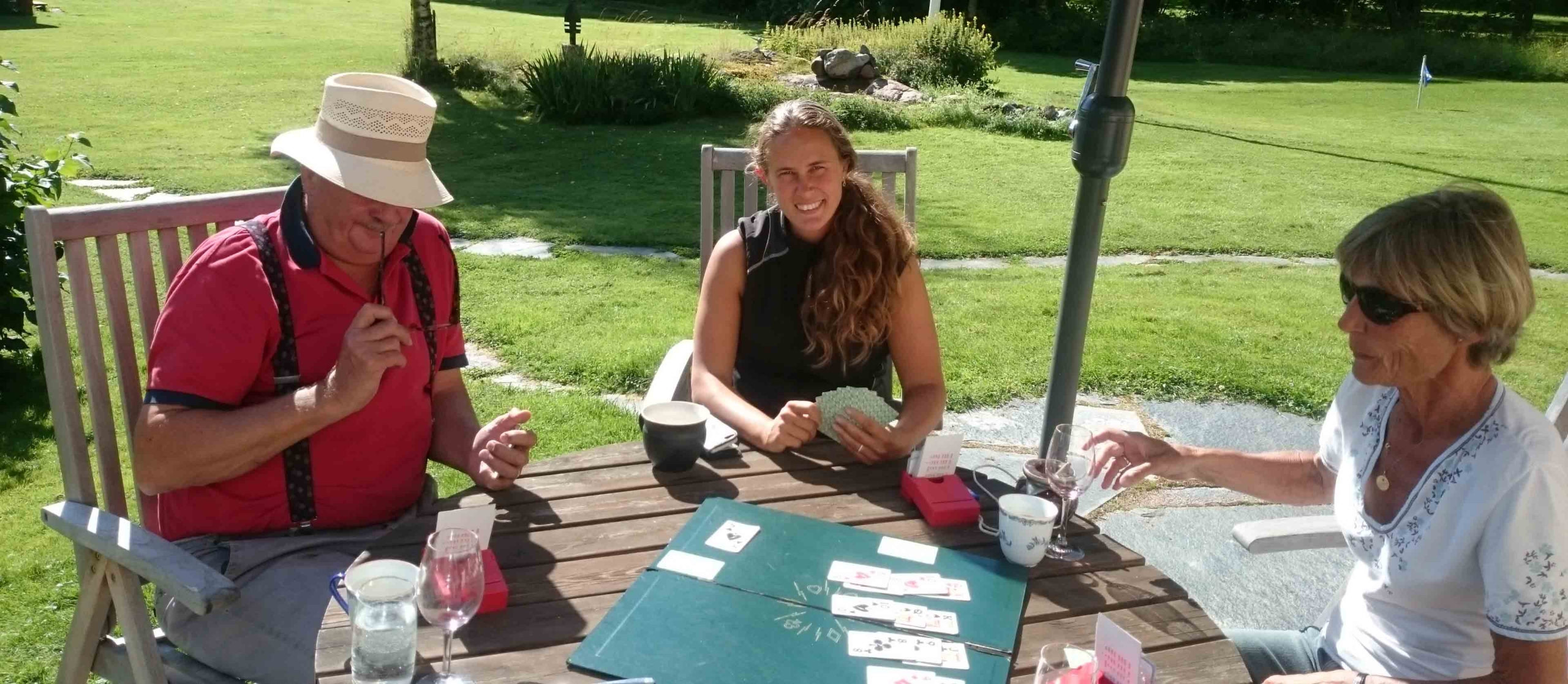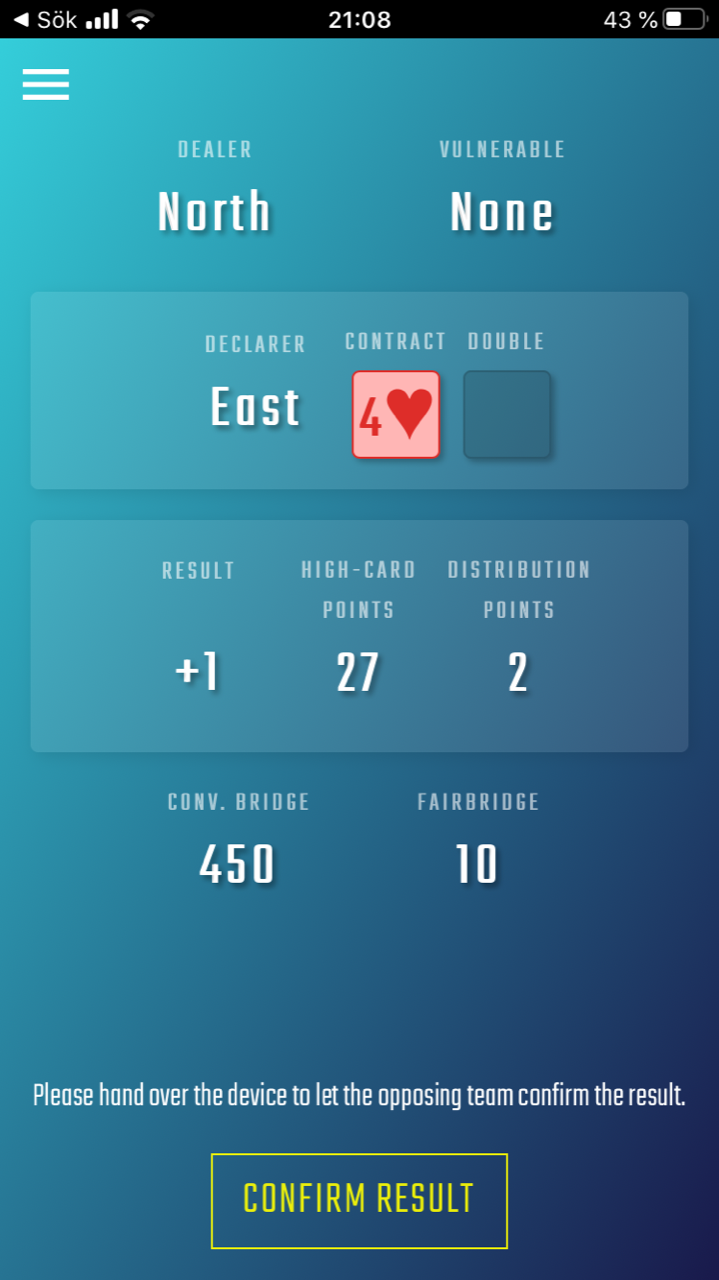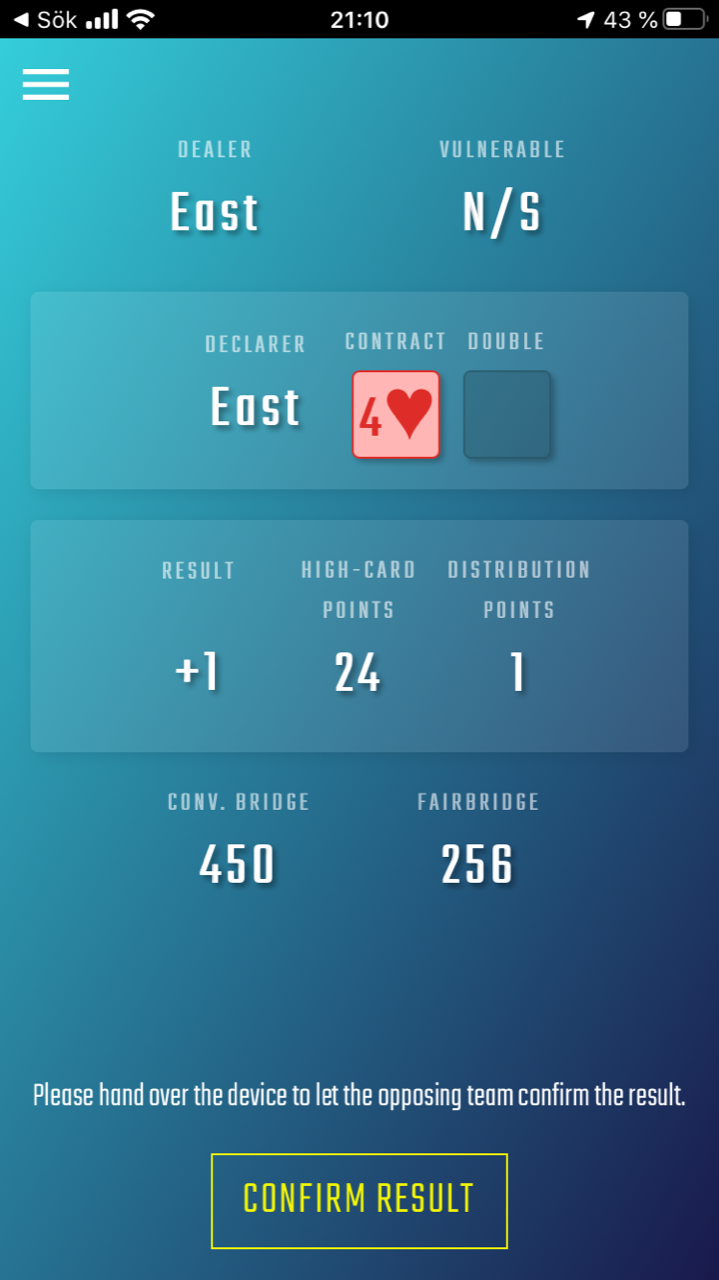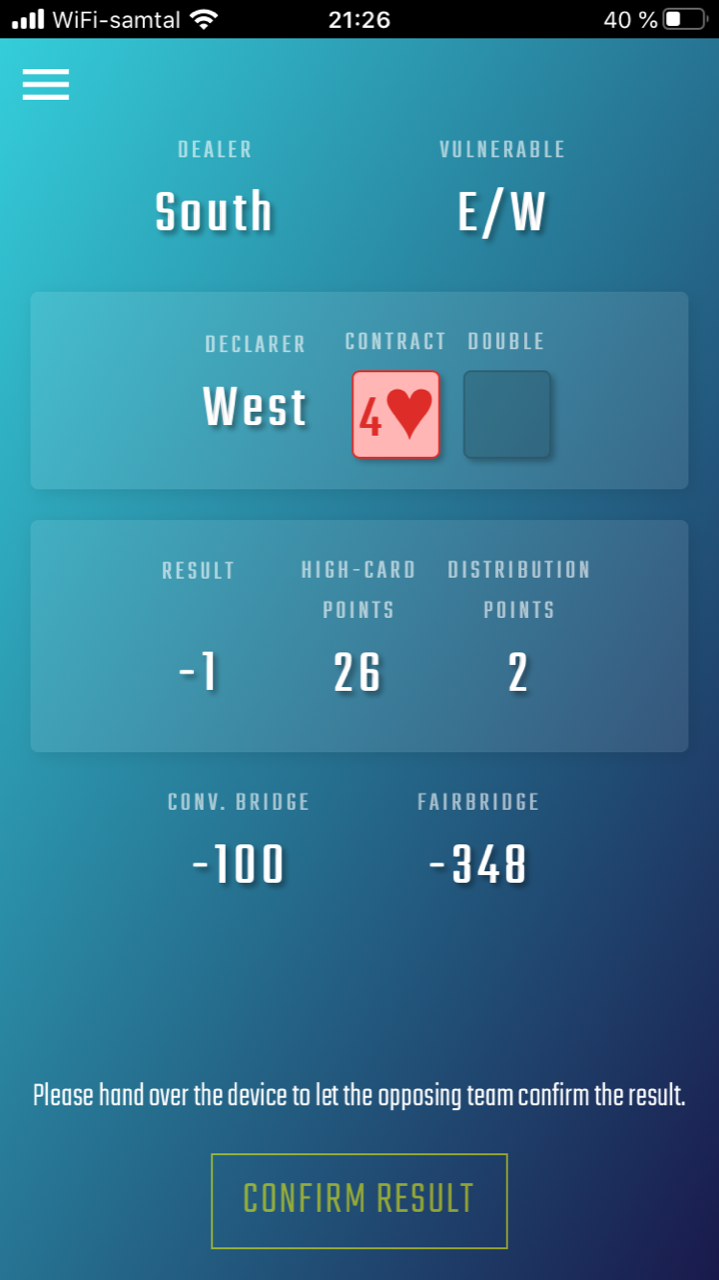Don’t let luck decide! Revolutionary scoring app for social bridge
When playing social, as opposed to competitive, bridge it is almost impossible to know who is the ”real” winner. More often than not, the side with the best cards will win, regardless of their playing skills. FAIRBridge solves this problem by taking card quality into account when assigning scores. The app will of course also keep duplicate bridge scores and keep track of vulnerability and who is the dealer.
Duplicate bridge: Used in competitive bridge tournaments. The kind of bridge where you get 420 points for game in a four hearts contract (non-vulnerable) for example.
Why use the FairBridge app?
Regardless of whether you use duplicate bridge scoring or rubber bridge scoring when playing social bridge, the result will be decided more by card quality than the skill of the players. FAIRBridge solves this problem by taking card quality into account when assigning points to each side.
What else can FAIRBridge do?
The FAIRBridge app will keep track of vulnerability, dealer and the duplicate bridge score. It will also provide some additional statistics such as percentages of contracts made and high-card points for each side.
How does it work?
Total Card Points (TCP) = high-card points + distribution points
East has made 4 hearts with one overtrick (non-vulnerable). The duplicate bridge score is 450. The FAIRBridge score is only 10, because the declarer had 29 TCP and only did what was expected.
East made the same contract. The duplicate bridge score is still 450, but the FAIRBridge score is 256. The reason for the change is that game was made with only 25 TCP and the declarer exceeded expectations.
West did not make the contract despite having 28 TCP. The duplicate bridge score is -100 (minus one trick vulnerable), but the FAIRBridge score is -348. With 28 TCP you are expected to get 620 duplicate bridge points, so West failed miserably.
The scoreboard shows both duplicate bridge score and FAIRbridge score. If your FAIRBridge score is zero when the game is over, you have played according to expectations, given the cards you were dealt. For golfers: You have played on par.





